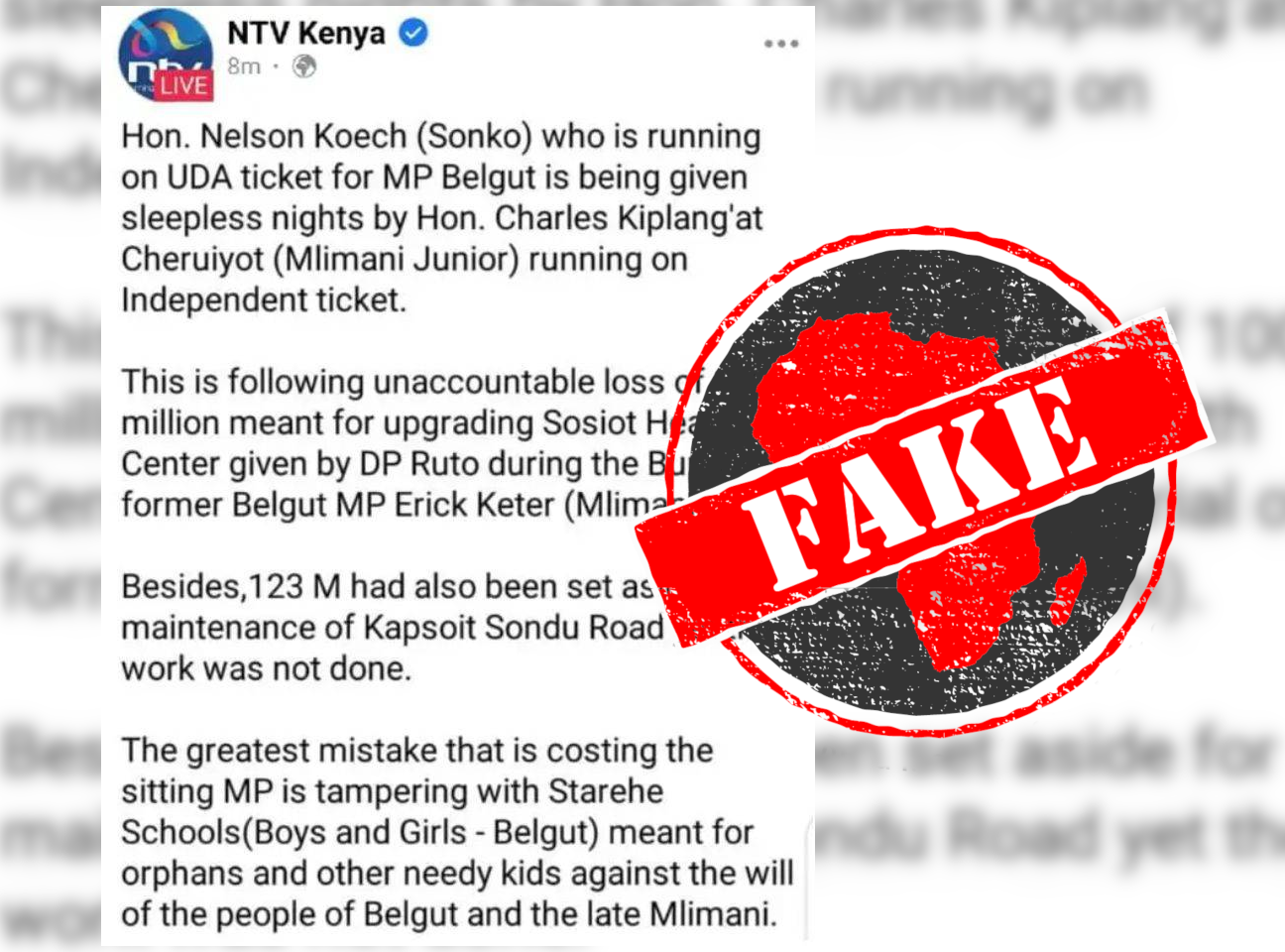Ahead of the Kenyan general election on 9 August 2022, a screenshot of what looked like a Facebook post by Kenyan television station NTV Kenya was posted online.
The post claimed politician Nelson Koech, who represented Belgut constituency in the national assembly between 2017 and 2022, was having “sleepless nights” because of his political rival.
The screenshot linked Koech to an “unaccountable loss of KSh100 million” and an incomplete roads project worth KSh123 million.
The screenshot was posted in July 2022 at the peak of election campaigning in Kenya.
But was any of it true?
We checked.

Screenshot with fabricated content
The information in the post was not reported by any credible media outlet.
On 25 July NTV Kenya posted a blurred version of the screenshot stamped “fake” on its Facebook and Twitter accounts. It captioned it:“Be aware of fake news! If it is not on our official social media pages, it is fake.”
The screenshot circulating on social media appears to be a tactic used for political smearing, where fabricated content is branded with the logo and name of reputable news organisations.
Republish our content for free
For publishers: what to do if your post is rated false
A fact-checker has rated your Facebook or Instagram post as “false”, “altered”, “partly false” or “missing context”. This could have serious consequences. What do you do?
Click on our guide for the steps you should follow.
Publishers guideAfrica Check teams up with Facebook
Africa Check is a partner in Meta's third-party fact-checking programme to help stop the spread of false information on social media.
The content we rate as “false” will be downgraded on Facebook and Instagram. This means fewer people will see it.
You can also help identify false information on Facebook. This guide explains how.





Add new comment